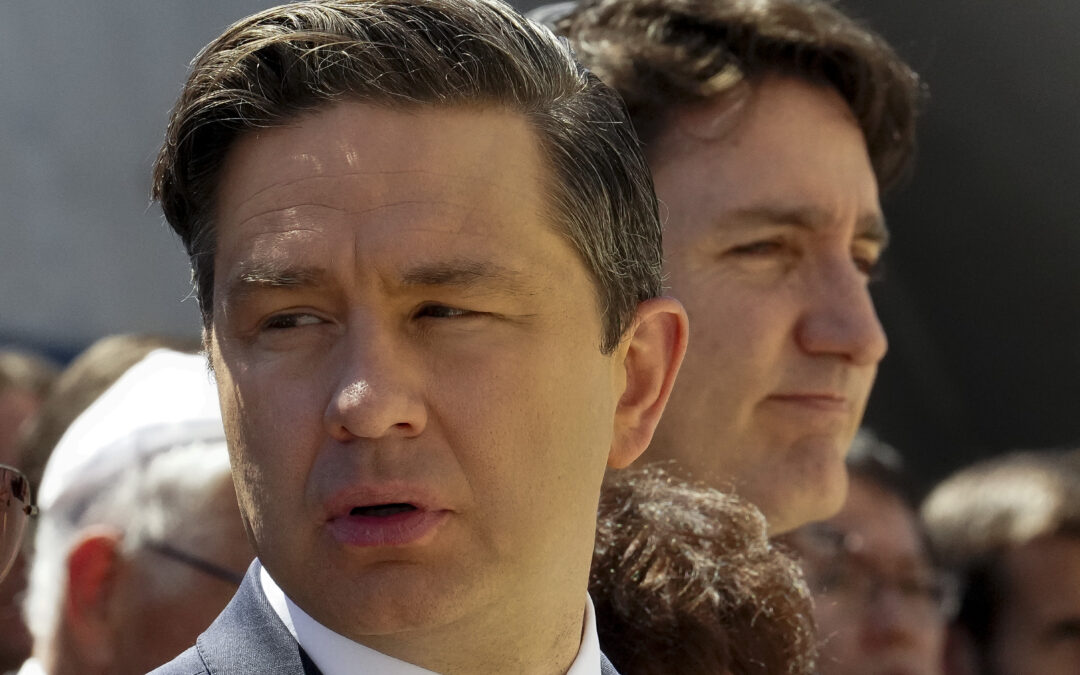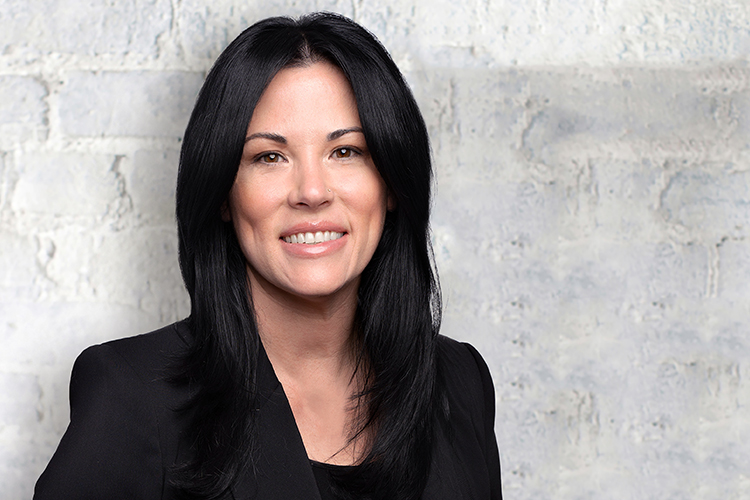In a shocking upset, the Conservative Party of Canada (CPC) led by Pierre Poilievre have won the Toronto—St. Paul’s byelection. The victory represents a notable turning point for both the Liberals and Conservatives. The Liberals have comfortably held the riding of Toronto—St. Paul’s since 1993, while the Conservatives had not won a riding in Toronto proper since 2011. The Liberal loss will no doubt further depress a party that has been spiraling downwards in the polls, while the Conservative win will further invigorate the surging opposition.
While initial poll results early in the evening had favoured the Liberals, Conservative candidate Don Stewart ultimately won with 42.1% of the vote, as the final results trickled in by 5 a.m. this morning. Stewart secured his victory by a mere 590 votes. Liberal candidate Leslie Church was second with 40.5% of the vote, while the NDP took home 10.9% of the vote.
Monday’s vote had a notably large voter turnout, especially for byelections. 43.5% of voters turned out to vote in the byelection. By comparison, the recent Durham byelection, which saw CPC candidate Jamil Jivani win, had a turnout of only 27.8%. This denotes an increasingly engaged and active electorate who saw an opportunity to send a message that they wanted to see a change in Ottawa. Unlike most byelections, which have little impact on who the Prime Minister is, a Liberal defeat in the stronghold of Toronto—St. Paul’s was seen as a potential catalyst for Prime Minister Justin Trudeau to decide on whether to remain until the next election or resign so the party could go into the next general election with a new leader and a refreshed brand/message.
The Context – Liberals Limp while the Conservatives Surge
The Toronto—St. Paul’s byelection was triggered by the retirement of longtime Liberal MP and Cabinet Minister Carolyn Bennett. Having initially won the riding in 1993 from the Conservative incumbent, Bennett held the seat for the last 26 years. Upon her retirement, Bennett was named the Ambassador to Denmark.
While the riding has been traditionally seen as a ‘safe seat’ for Liberals, given its location in the downtown Toronto area and Bennett’s commanding retention of the seat, there was every indication that this race would be more difficult for the Liberals. The Conservatives have been consistently leading the Liberals in voting intention since June of 2023, and have had double-digit leads over the Liberals since (late) September 2023.
The Liberals yearlong downward polling trend shaped the byelection into what was likely a referendum on Trudeau and a benchmark for his party’s ability to retain the liberal fortress of the vote-rich GTA.
While the polling numbers remained dire for the Liberals, they did make efforts to turn the tides ahead of the Toronto—St. Paul’s byelection. The most notable effort was the April Budget through which the governing Liberals sought to reclaim the national narrative on affordability and housing. By focusing on generational fairness, the Liberals had hoped to establish a narrative to win back younger voters, the voting bloc that gave them decisive wins in the past several elections, despite having since grown disillusioned with them.
An additional complication for the Liberals throughout the byelection was the domestic effect of geo-political events, most notably the events of October 7th and the ensuing war in Gaza. While the politics of the Israel-Hamas conflict divided the Liberal caucus and animated the entire country, the voters of Toronto—St. Paul’s watched in earnest. With 15% of its residents identifying as Jewish, the riding ranks as the federal riding with the fifth-largest Jewish community.
As the race began to heat up, both the Liberals and Conservatives deployed their front benches to the riding as each party realized that the riding was transforming in real time from a safe seat into a battleground byelection.
Analysis – Small Margin, Big Impact
In recent memory, the Conservative Party has been able to compete and win in urban areas when the progressive vote has been split by the Liberals and the NDP. Yesterday’s Conservative victory defied this trend as the NDP vote share notably declined from 17% in 2021 to 11% in 2024. While the Conservatives may have only won by 1% of the vote, they nonetheless marshalled a 17-point gain in vote share compared to 2021. This was not a random outcome due to vote splitting but rather a well fought victory that indicates the real possibility of a drastic reshaping of the electoral map.
Voters have confirmed a few key points by awarding the Conservative’s victory in Toronto—St. Paul’s:
- Conservatives have accurately dialed in on the issue set that currently animates voters
- Conservatives were hungry to win and able to marshal resources and energy in a Liberal stronghold
- Canadians are fatigued with Justin Trudeau’s tenure as Prime Minister
- Canadians are open to change and willing to send a message to Ottawa
With this unprecedented victory in a historically safe Liberal stronghold, Liberal MPs have been officially put on notice that no seat is safe in the coming election. This will alter the Liberal Party’s pre-election planning and put a greater strain on the party’s confidence in Trudeau’s leadership. With sagging poll numbers, Liberal MPs may break rank and call for the resignation of Trudeau in hopes of a more prosperous general election. The Liberal Party of Canada must also be aware that watching a “safe seat” become a Conservative victory is disastrous for recruiting potential candidates.
Ultimately, while this byelection was won out by a small margin it seems destined to have an outsized impact on the future of the governing Liberals and tenure of Prime Minister Trudeau.
Conclusion
A rematch of Monday’s byelection appears to be on the horizon. In a statement this morning, Liberal candidate Leslie Church noted her intent to contest the riding again during the next federal election while admitting that:
“Yesterday voters in Toronto—St. Paul’s sent us a clear message, that they want us to re- earn their trust. I hear that message loud and clear, and that’s exactly what we plan to do.”
Undoubtedly, the focus will now quickly shift from the riding of Toronto St. Paul’s to the Liberal party at large as questions of Justin Trudeau’s leadership at the helm of the party takes on a new dimension. Whether Trudeau stays or goes as leader, it increasingly appears to be within in the Liberal’s strategic favour to see through their entire mandate and call an election in 2025. Continuing to govern into 2025 will allow the Liberals to enjoy the prospect of lower interest rates, stabilizing inflation and to debut a final Budget by which they will hope to engineer a successful inflection point. Watch for an increasing emphasis on affordability issues, as we approach the tabling of the Fall Economic Statement later this year, as the Liberals hope to make up lost ground by focusing on the less divisive – and potentially unifying – narrative of governing for a beleaguered and cash-strapped middle class.
All eyes are now on the Prime Minister to see how he weathers this summer storm, signaled by the gathering clouds of the one crisis he may not have the resources to address: a crisis in confidence regarding his leadership.
Change in Ottawa is on the horizon. Are you ready?
Counsel has a strong team of experienced Conservatives to help you prepare:
Alex MacDonald
Account Director
amacdonald@counselpa.com
Chase Tribble
Senior Consultant
ctribble@counselpa.com
Amber Ruddy
Vice President
aruddy@counselpa.com
Logan Ross
Senior Vice President
lross@counselpa.com
Rob Elliott
Associate Vice President
relliott@counselpa.com
Jennifer Henshaw
Associate Vice President
jhenshaw@counselpa.com
Johanna Chevalier
Associate Vice President
jchevalier@counselpa.com
Felix Burns
Account Director
fburns@counselpa.com
Dylan Topal
Senior Consultant
dtopal@counselpa.com
Elizabeth Campbell
Consultant
ecampbell@counselpa.com











